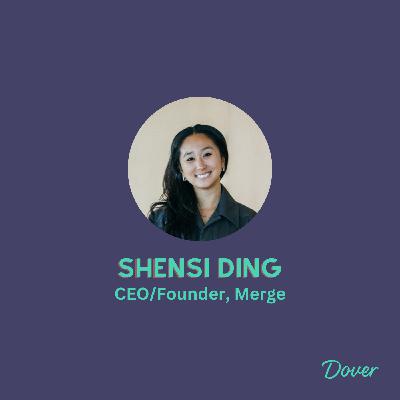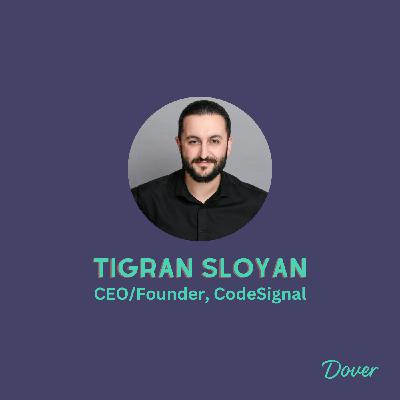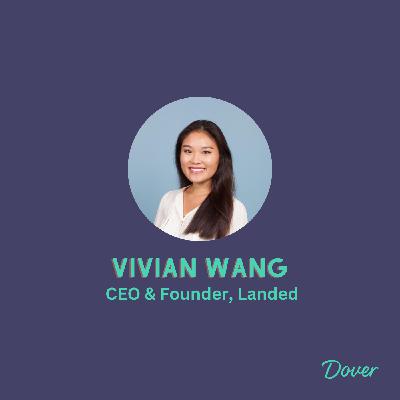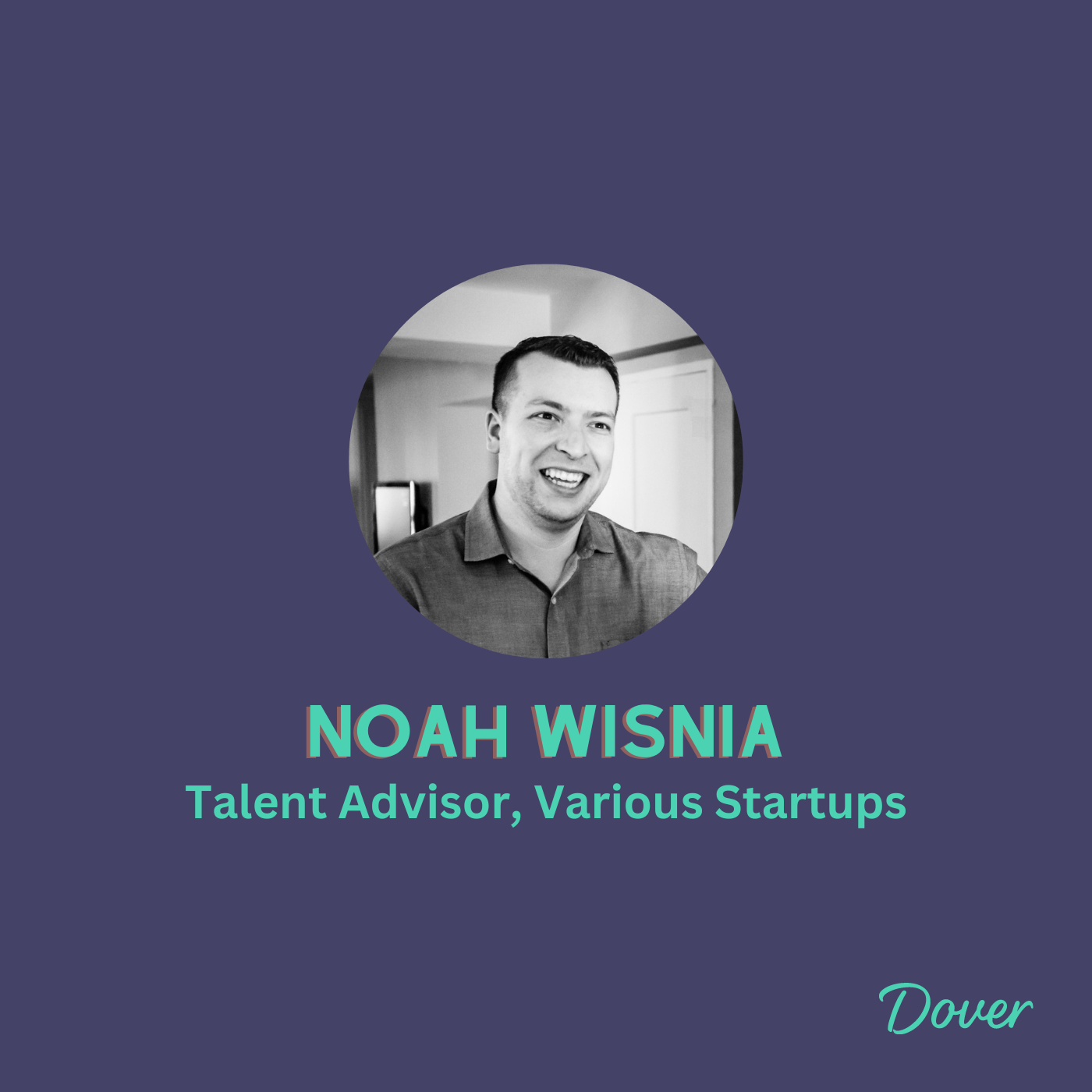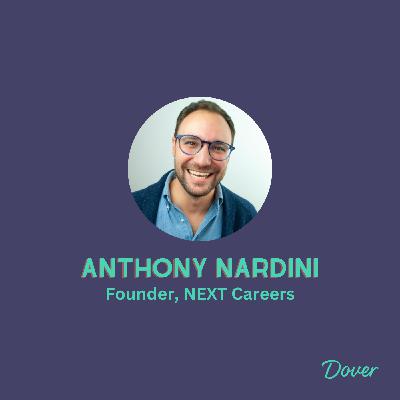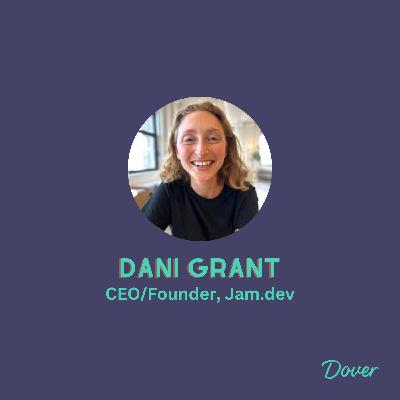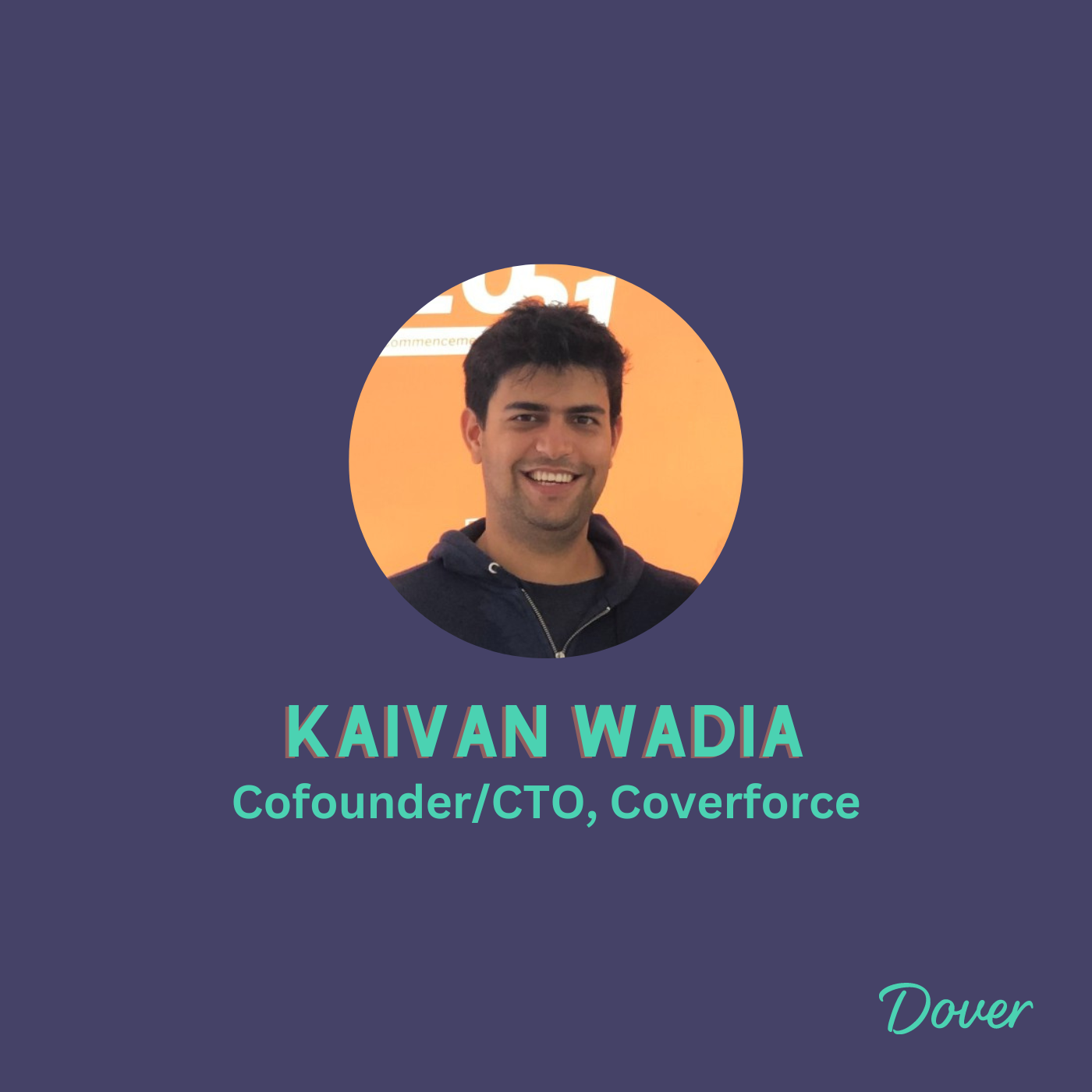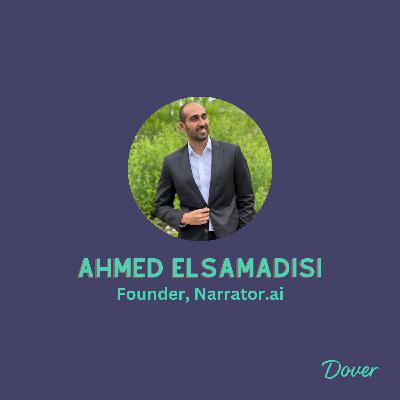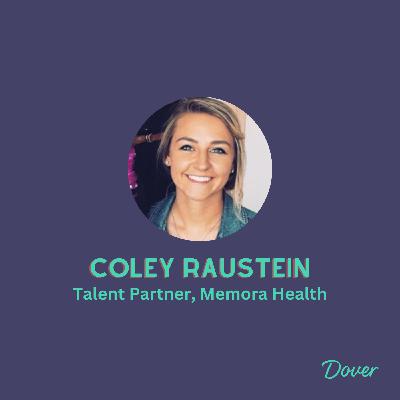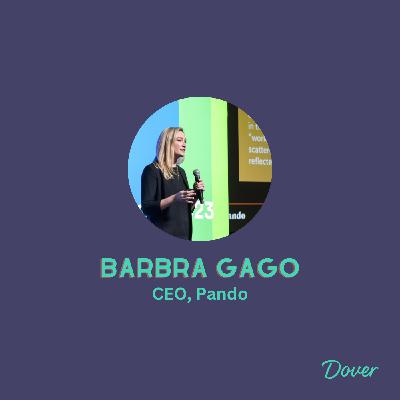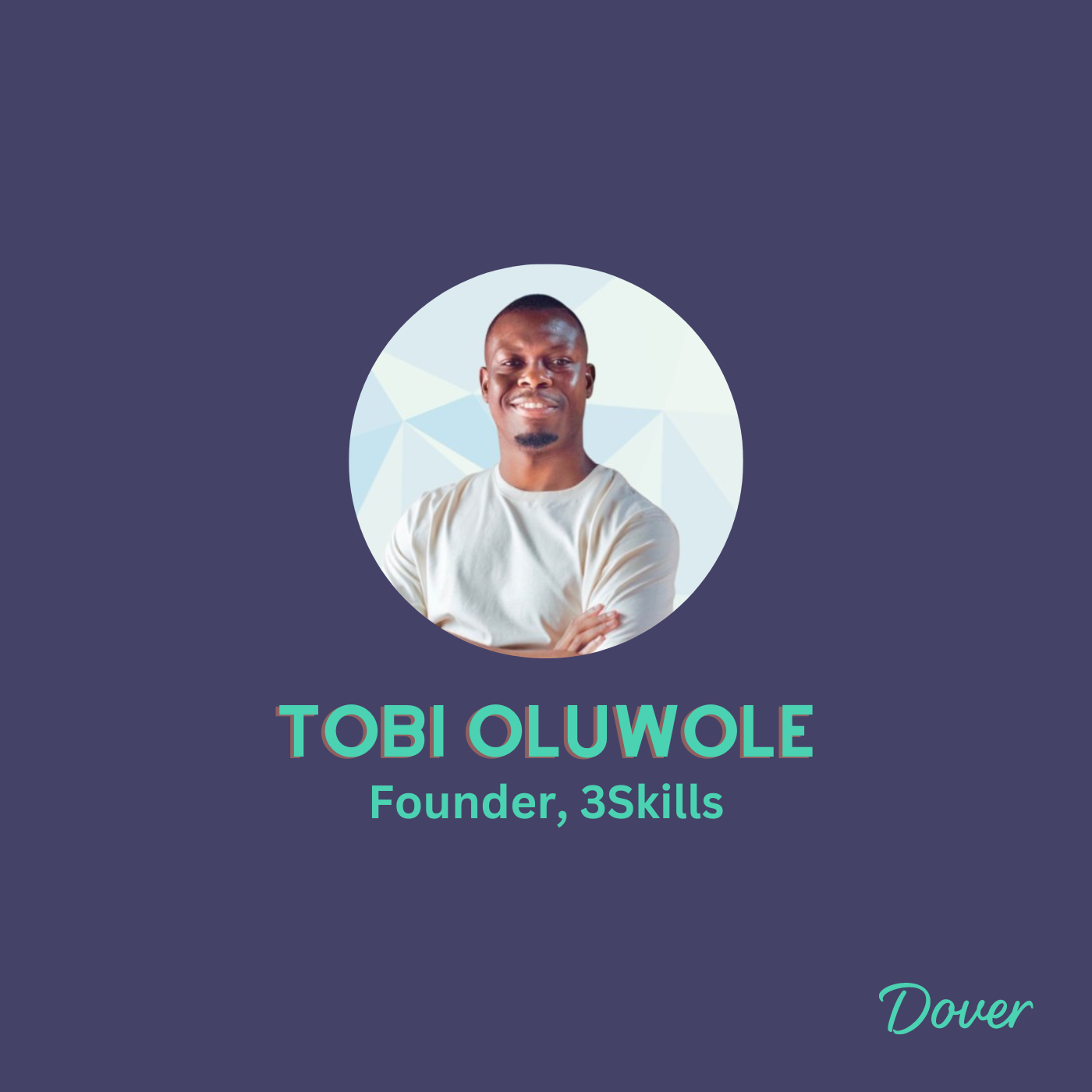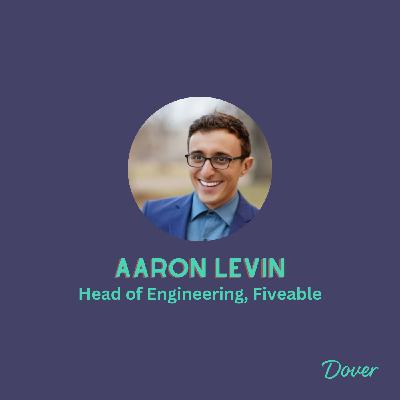Discover How We Built Our Team
How We Built Our Team

How We Built Our Team
Author: Dover
Subscribed: 1Played: 4Subscribe
Share
© 2023
Description
Join us as we talk to successful founders and leaders in the hiring and recruiting space to learn their strategies for building and scaling their teams. From attracting and impressing top talent to creating a strong company culture, our guests will share their insights and experiences on what it takes to build a successful team. Tune in for actionable advice and inspiration on building your dream team.
17 Episodes
Reverse
This week, we’re joined by Shensi Ding, CEO and co-founder of Merge. Merge offers unified APIs that allow developers to integrate once to offer a full category of integrations.
Many companies have returned to the office recently or offer hybrid arrangements, but Shensi has always been a big believer in 100% in-person work. The Merge team is based in New York… and most of them were invited to be there.
In this episode, Shensi shares how sourcing remains critical to Merge’s recruiting strategy (even amidst an influx of applications) and why hiring managers own it rather than recruiters.
It’s pretty evident that Shensi is passionate about the culture at Merge. She ensures that junior team members feel comfortable to bring up ideas and everyone’s a joy to work with. There’s a “no asshole policy” — and it starts with hiring really good people.
How?
She gives us the breakdown on the Merge interview process and how they’ve approached hiring for skills AND culture fit, when the bar for both is pretty dang high.
Learn more about Merge at merge.dev.
Follow Shensi on LinkedIn to get connected: https://www.linkedin.com/in/shensiding/.
This week, we’re joined by Tigran Sloyan, CEO and co-founder of CodeSignal, for a unique conversation about skills. Tigran identifies that talent is the biggest problem humanity has to solve — and how we identify and assess skills today is broken.
He founded CodeSignal, a leading technical interview and assessment platform to help companies go “Beyond the Noise” with early-stage assessments, technical screens, and live coding interviews.
He shares how to mitigate bias in assessments, balancing hiring for demonstrated skills vs. ability to learn and grow, and the importance of anchoring to hard skills.
Tigran is also a frequent industry keynote, a TED speaker, and a thought leader in the technical hiring industry, commenting on trends in talent acquisition, diversity, and innovation. Follow Tigran on LinkedIn to follow along: https://www.linkedin.com/in/tigransloyan.
Learn more about CodeSignal at codesignal.com.
In this week’s episode, we talked to Dave Carhart. He’s a fractional HR executive and HR tech advisor who is currently the VP of People Strategy at Lattice.
He previously led the People teams at Lattice as they scaled 5x and at Branch Metrics as they scaled 3x. He led Mulesoft’s team through their IPO and acquisition by salesforce for 20x ARR. And before moving into startups, he spent several years at HP, which was over 300,000 employees at the time.
Dave has essentially seen it all. And he’s been focused on people the entire time.
We dive into the weeds of Dave’s experience across these different stages of company growth — and in the process, unlock his advice for how to build a people strategy that supports your business strategy at all stages of growth.
Whether you’re hiring your first 100 employees or preparing for an IPO, this is an episode you won’t want to skip.
Find Dave on LinkedIn at https://www.linkedin.com/in/davecarhart/ or reach out via email at dave@lattice.com to connect!
In this episode, we talked to Vivian Wang, CEO and solo founder of Landed, an end-to-end recruiting platform that transforms how companies hire hourly candidates. They’ve helped hundreds of thousands of workers get jobs at companies like Starbucks and McDonald’s.
With a big mission, Vivian shares how Landed hires top talent based on both aptitude and experience. They’ve designed an interview process that filters for their 5 operating principles and ensures late stage candidates are fully bought in.
Vivian’s tips are helpful to any founder or hiring leader designing interview loops to hire in line with their values and driving a transparent process for candidates. Vivian breaks down all of Landed’s key interview steps and ‘counter-sell’ offer strategy as well as the guidelines she uses to govern a hyper fast-moving early startup team.
You can find Vivian on LinkedIn here or reach out via email at vivian@gotlanded.com. She’d love to get in touch!
In this episode, we sat down with Noah Wisnia, a relationship-driven recruiter with successful hires at over 550 startups. He shares the scoop on where most startups go wrong with hiring and how to avoid those common pitfalls.
He shares tangible tips to help you build a more effective recruiting process that actually drives results. He also talked us through how he uses tech-enabled hiring tools to spend more time on what matters — building relationships.
Key Takeaways:
The job description — what most people get wrong, why it matters, and what to do instead
The importance of clear communication when defining roles
Trusting experts and hiring the right people for the job
How to treat hiring as a team sport involving recruiters, hiring managers, and founders
Strategies for re-engaging candidates who may be a good fit in the future
Using tech to streamline hiring and create the best experiences for everyone involved
Noah Wisnia spent the first half of his career in Product Management before becoming a relationship-first recruiter. He’s grown startup teams 300%+ YoY through seamless tech-enabled hiring with hires at over 550 startups.
You can find Noah Wisnia on LinkedIn at: https://www.linkedin.com/in/noahwisnia/. Don’t hesitate to reach out!
This week, we got the scoop from Melissa Kargiannakis, an executive coach to world-class founders and former founder herself, on how to build effective remote teams in less than 4 hours of meetings per week. In this episode, she shared insights for founders on building a remote team, creating company values, leading by example, and creating a candidate-centered hiring process.
In this episode, we chat about:
Intentionally building remote teams by setting expectations, building personal connections, and ensuring transparency to enable autonomy
How to develop company values where the founder & CEO is a participant, not a facilitator
Tips for founders on on building resilience and surrounding yourself with people who balance out your weaknesses
Emphasis on the value of niceness and empathy in leadership
In addition to coaching founders, Melissa is currently the Head of Business Operations at Cloudfare and was formerly founder and CEO of Skritswap. Read about how she builds remote teams here.
Connect with Melissa Kargiannakis on LinkedIn at https://www.linkedin.com/in/kargiannakis/.
With recent hiring freezes and layoffs, startups need to be more selective and strategic in their hiring approaches to attract and evaluate qualified, motivated candidates. In this episode, we get tips for startup founders on effectively communicating their needs, creating friction to find the best fit, and taking chances on career changers.
Key Takeaways:
- How to clearly communicate roles you are hiring for right now to attract qualified candidates
- Tips for avoiding "ghost roles" that waste candidates' time and breed distrust
- How to articulate your startup's values and required skills to help candidates self-select for fit
- Ways to add friction to your application process to surface the most interested and relevant applicants
- The benefits of project or contract-to-hire arrangements for evaluating career changers
- Why taking chances on career changers can build loyalty on your team
Anthony Nardini is the the CEO and Founder of NEXT, a community for mid-career and exec-level job-seekers searching for startup roles. NEXT partners with top startups and VC firms to help community members find amazing roles.
Learn more at nextcareers.co.
You can find Anthony on Linkedin at: https://www.linkedin.com/in/anthonynardini/.
Dani Grant started Jam to solve an age-old problem: how to improve software development, which hadn't progressed in 30 years. As CEO of Jam, Dani aims to build company success through focusing on meaningful impact, shared wins, and authentic connections between teams and users.
In this episode, we chat about:
How to pick co-founders, investors and customers you want to work with long-term, and a problem space you can discuss daily for years.
Standardizing compensation and equity early to align your team around shared success.
How to remain resilient in a tough market
Building remote team culture and fostering innovation with rigor
and more!
Welcome to "How We Built Our Team," the podcast where we explore the strategies, challenges, and triumphs of building successful teams. In today's episode, we delve into the world of team building with our guest, Jesika Haria, founder of Logic Loop.
Join your hosts, Magda and Lavanya, as they dive into Jessica's experiences and uncover valuable insights on building and scaling teams in the dynamic startup ecosystem.
In this episode, we discuss:
Strategies for tapping into networks and maximizing connections to identify top talent.
The value of diverse networks in attracting talent and forming well-rounded teams.
Embracing a beginner's mindset and learning from challenges when hiring the first team member.
Lessons learned and experiences faced during the initial hiring process.
The significance of adopting a beginner's mindset to navigate team building complexities.
The importance of trust within a team and ways to establish it.
Practical tips for building relationships and fostering open communication.
How to create an environment where team members can trust and rely on each other.
Overcoming common hurdles in team building and scaling.
Prior to LogicLoop, Jesika helped top ten banks automate lending at Instabase, a $4B company born out of her research at MIT, as a founding engineer who later started their Product function. She also built data transformation software at Trifacta / Google Cloud Dataprep. She loves to chat about all things data and fintech.
In this episode, we have the pleasure of hosting Kaivan Wadia, the CTO and cofounder of Coverforce, a disruptive insurtech startup. Kaivan shares his journey from Amazon to the world of entrepreneurship and provides valuable insights into building a technical organization from the ground up. Join us as we explore the challenges, strategies, and vision behind revolutionizing the insurance industry.
We discuss:
Kaivan's journey from a prominent role at Amazon to becoming a startup cofounder.
Challenges and lessons learned in building a technical organization from scratch.
Key factors to consider when assembling a high-performing team.
Defining and cultivating an engineering culture that promotes ownership and long-term thinking.
Strategies for nurturing a collaborative and innovative team environment.
Benefits of promoting from within and investing in employee growth.
In this episode, we have the privilege of diving into the remarkable journey of Ahmed Elsamadisi, the founder of Narrator, a groundbreaking data analytics tool. Join us as Ahmed shares his insights and experiences, from scaling WeWork's data team to founding his own company.
We discuss:
Ahmed's diverse background, including work on self-driving cars, human-robot interaction, and AI algorithms for missile defense.
The challenges faced while scaling WeWork's data team from its inception to a team of 40 individuals.
The importance of aligning expectations during the hiring process and the need to challenge traditional hiring practices.
Prioritizing diversity and fostering inclusivity in the hiring process for startups.
Ahmed's unique perspective on finding the right balance between expertise and adaptability when building a startup.
Valuable lessons learned along the entrepreneurial journey and advice for aspiring entrepreneurs.
Whether you're an entrepreneur or an enthusiast in the field of data analytics, this episode will inspire and inform you about the evolving landscape of hiring and data innovation.
In this episode, we talked to Coley Raustein. Coley is a Talent Partner at Memora Health where she owns all recruiting as a team of 1. She brings a wealth of experience from recruiting teams at a range of tech companies from startups to FAANG. Before joining Memora, Coley was a recruiter at Amazon and Recursion Pharmaceuticals, a post IPO biotech startup.
She brings a wealth of experience from recruiting teams at a range of tech companies from startups to FAANG.
We focused our discussion on her experience as the only recruiter at Memora and how she brings structure to the ambiguity that comes with hiring first-of roles. She shares tons of tactical tips for founders and early-stage hiring teams building out an effective recruiting function.
We discuss:
How she spends her time as the only recruiter at a 100+ person company
Best practices for closing candidates
How to hire first-of roles & building a playbook to guide the team
Using phone screens to iterate on sourcing strategy
Resources you need as an early-stage recruiter to scale your time
How to build great hiring manager <> recruiter relationships
Training interviewers at an early-stage company
In this episode, we'll be talking to Barbra Gago, Founder and CEO at Pando, who has spent her career as a CMO building and scaling companies from pre-series A to scale-up mode. She brought companies like Culture Amp and Greenhouse to market, and prior to founding Pando, she was the CMO at Miro, leading the re-brand from RealtimeBoard to Miro and scaling the business from $3m to $50m in ARR in just under 2 years. We'll be discussing her experiences building teams across a wide variety of contexts and uncovering what it takes to create successful GTM motions and new categories for some of the world's best products.
We discuss:
Differences in approach when hiring a founding team versus scaling an existing team
The importance of finding the right balance between specialists and generalists
The crossover between marketing and recruiting, and the importance of brand, structure, funnel, data, and pipelines
The use of the "employee LTV" metric to think about compensation and retention
The essential marketing roles for building a high-functioning organization and managing marketing people to outcomes
Hiring for product-led growth (PLG) and the importance of data-focused and experimentation mindsets
The differences between marketing and recruiting tools, and the misconceptions people often have about recruiting
Experimenting with different categories to increase the value of the "people team" and making recruiting a more valuable function within organizations.
Description: In this episode, we speak with Max Kolysh, the CEO of Dover, about the importance of building a strong founding team. Max shares his insights on how to hire your founding engineer, pitfalls to avoid when hiring executives, and the future of AI in recruiting. This conversation covers a lot of ground and provides valuable advice for anyone looking to scale their early team.
Key Takeaways:
Building a strong network is crucial when hiring for your founding team. Max shares his tips for building a network of trusted advisors and mentors.
Hiring executives can be tricky, and Max provides insights on common pitfalls to avoid when bringing on new leaders.
When hiring your founding engineer, it's important to look for someone who shares your vision and is willing to take ownership of the product.
AI is already making waves in the recruiting space, and Max shares his thoughts on how it will continue to shape the hiring process in the future.
Scaling your early team can be a challenge, but by following the strategies and advice shared in this episode, you can build a strong foundation for your company's success.
If you're an entrepreneur or business owner looking to build a successful founding team, this episode is a must-listen.
In this episode of the podcast, we sit down with Tobi Oluwole, Sales Manager at Shopify and founder of 3Skills, to discuss how to create the best candidate experience in today's hiring market. Tobi shares his insights on what candidates are really looking for, the importance of effective feedback during the hiring process, and how to prioritize speed to attract top talent.
Tobi also emphasizes the significance of treating candidates like humans and leaving them better than you found them. He discusses how to provide specific and constructive feedback to candidates, and reveals Shopify's process for giving feedback to candidates in the final stages of the interview process.
Additionally, Tobi talks about the growing trend of candidates diversifying their incomes and why it's important for employers to support them in those endeavors. He also touches on the importance of culture in attracting talent and how it can make up for lower compensation in a market downturn.
Whether you're a hiring manager, recruiter, or candidate, this episode offers practical tips and insights on creating a winning candidate experience. Tune in to learn how to stand out in today's competitive hiring market!
In this episode of "How We Built Our Team", Aaron Levin, Head of Engineering at Fiveable, shares his experience and insights on scaling a team and finding the right candidates. We discuss his approach to hiring, including how he uses Dover as an extension of his team, to save time and resources.
Moreover, Aaron shares his thoughts on how to tactically prioritize diversity in engineering hiring, with a strategy called candidate pooling. He also talks about AI for hiring, and how to optimize your outreach, interview process and screening of engineering candidates to get the best talent for your early team.
For our first episode, we welcome Jim Stroud, a content creator, marketing genius, and former global head of sourcing and recruiting strategy at Ranstad. He has consulted for companies such as Microsoft, Google, and Siemens, and is currently producing The Recruiting Life, a comic strip about the world of work.
We discussed recruitment marketing and how recruiters can use AI to attract potential candidates, and a sourcing concept called the "Batman Robin strategy.” We also touched on the relationship between recruitment and marketing, and how founders can use their marketing efforts to attract both potential customers and potential candidates.
Listeners can find out more about Jim Stroud on his website Jimstroud.com or on his Twitter and LinkedIn profiles. Stroud also produces "The Recruiting Life," a comic strip and newsletter about the world of work, and is currently looking for his next career opportunity.


